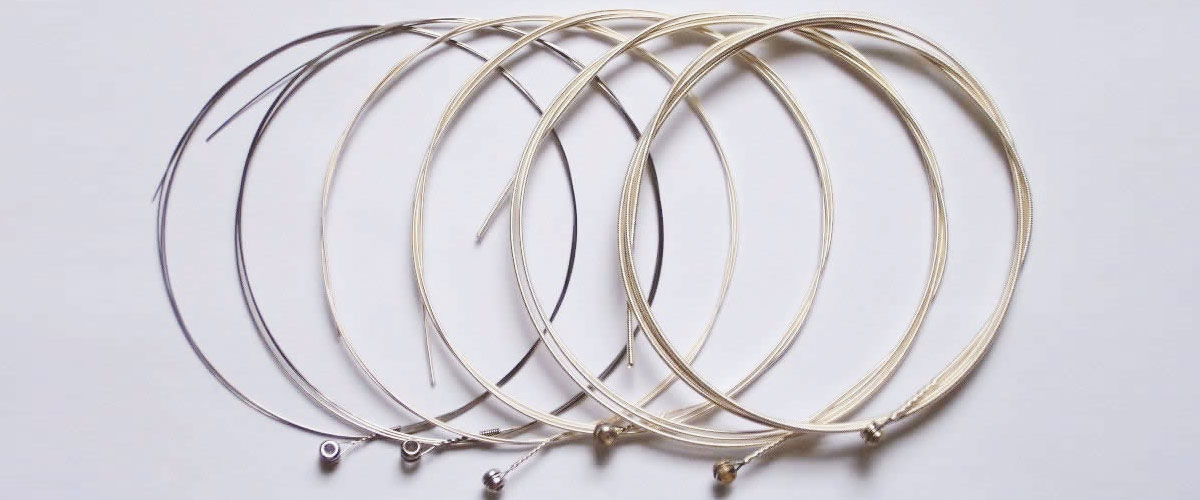Usually, many factors influence it. Here we can speak about the type of strings, how often they’re played, how well they’re cared for, etc.
If you play more frequently or are particularly hard on your strings, you may need to change them more often. Conversely, if you take good care of your strings and don’t play as often, they may last longer. Playing in humid or salty environments can cause strings to corrode more quickly. As a general rule of thumb, changing your strings every few months is a good idea if you play regularly. If you don’t play as often, you can probably get away with changing them once or twice a year. Of course, if a string breaks, you will need to replace it immediately.
Ultimately, paying attention to how your strings sound and feel and replacing them when they show signs of wear is essential.
How to know that my guitar strings need to be replaced?

If your guitar strings start to feel stiff or dull, it’s probably time to replace them. You can also check for wear and tear by looking at the ends of the strings. If they’re frayed or worn down, it’s time for a change.
If you’re unsure whether or not your strings need to be replaced, take them to a guitar shop and have a professional look. They’ll be able to tell you for sure if it’s time for a change.
What type of guitar strings is the strongest?

The strongest is the guitar string, made of the heaviest material. The heavier the string, the stronger it will be. You can find many guitar strings available on the market, each with its unique set of features. One type of string that is often lauded for its strength is the titanium string. Titanium strings are made from a metal known for being incredibly strong and durable, making them an ideal choice for those who want their guitar strings to last. While titanium strings may cost more than other strings, their durability is often worth the investment.
Different coatings can be applied to guitar strings to make them stronger. The most common type of coating is a clear coat or a lacquer. This type of coating will help to protect the string from wear and tear. It will also help to keep the string from rusting.
How to prolong the lifespan of guitar strings?

You can do a few key things to prolong the lifespan of your guitar strings. First of all, make sure that you clean them regularly. A simple wipe-down with a cloth after each playing session can remove any dirt, sweat, or grime that might build up on the strings and cause them to corrode. You can also buy special string cleaners designed to clean and protect your strings.
Besides, avoid contact with moisture as much as possible. If you’re not playing your guitar, store it in a case or bag in a dry place. If you need to expose your strings to moisture (for example, if you’re cleaning them), make sure that they are completely dry before putting them back on your guitar.
Good advice is not to over-stretch them. When you first put on a new set of strings, it’s important not to over-stretch them. While it may seem like stretching them will make them last longer, in reality, it can cause them to break.
It is also essential to use the correct gauge. Using the wrong gauge of string for your guitar can cause premature wear and tear. Consult your guitar manufacturer or an experienced guitar technician to determine which gauge is right for your instrument.
By following these simple tips, you can extend the life of your guitar strings and keep them sounding great for longer.
We are supported by our audience. When you purchase through links on our site, we may earn an affiliate commission at no extra cost to you.
Our newsletter
* We will never send you spam or share your email with third parties












